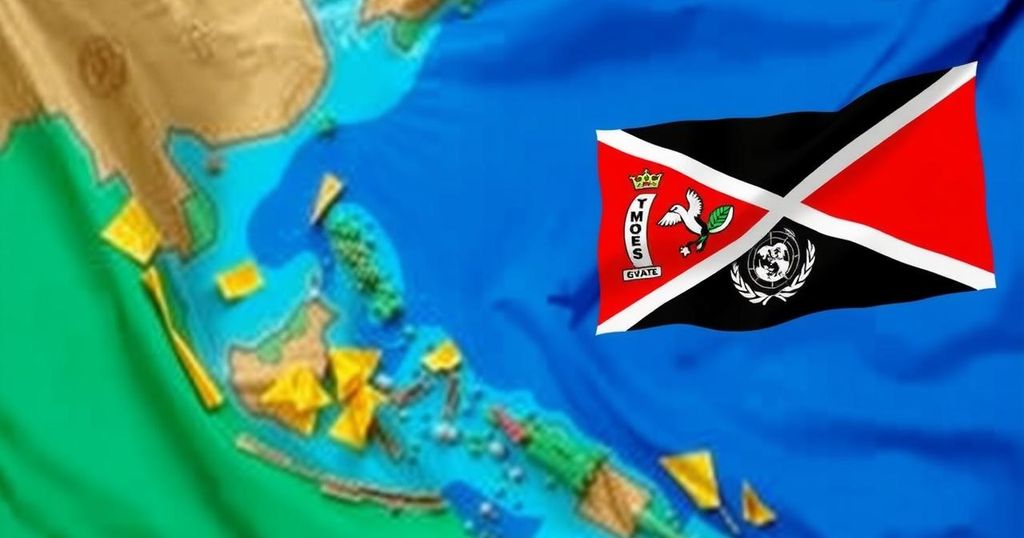Papua New Guinea plans to boycott the upcoming UN climate summit, criticizing it as ineffective and a “waste of time.” Foreign Minister Justin Tkatchenko highlighted the lack of tangible outcomes and the undue influence of major polluters during negotiations. The nation seeks to move towards direct climate agreements with countries like Singapore, emphasizing the urgent need for actionable climate policies.
Papua New Guinea has announced a boycott of the forthcoming UN climate summit scheduled for November, declaring the event a “waste of time.” Foreign Minister Justin Tkatchenko articulated concerns regarding the lack of substantive outcomes from the summit, which he believes fails to hold major polluters accountable. He underscored the nation’s unique position, being a significant rainforest country, which suffers from the adverse effects of pollution perpetuated by industrialized nations. Despite the historical significance of the COP meetings, which included the adoption of the Paris Agreement in 2015, there is increasing skepticism regarding their effectiveness. Tkatchenko noted that the rhetoric surrounding these summits has not translated into meaningful action on climate change, leading to disillusionment among nations like Papua New Guinea. He emphasized the need for direct action and bilateral agreements, particularly expressing interest in partnerships with nations such as Singapore to create effective solutions for climate issues. The decision to boycott reflects a broader discontent among Pacific nations, many of which are grappling with the dire realities of climate change. Tkatchenko stated that voices from smaller island nations have often gone unheard at these conferences, prompting his nation to take a stand for meaningful engagement rather than merely participating in discussions that yield little progress. Papua New Guinea aims to pursue alternative negotiations outside of the COP framework, focusing on collaborative efforts with like-minded countries in order to facilitate effective climate action. The recent COP meetings have encountered frustrations, particularly related to funding for climate adaptation in developing nations, further contributing to the rationale behind Papua New Guinea’s withdrawal from the summit. In summary, the nation’s decision to boycott highlights significant concerns over the efficacy of international climate summits and the pressing need for direct and actionable climate initiatives.
The backdrop of this situation involves longstanding frustrations with the UN climate negotiations, known as COP, which convene annually to address and negotiate global climate policies. Papua New Guinea’s rainforest, recognized as one of the largest expanses worldwide, positions the nation as an essential player in global environmental discussions. Yet, the country faces severe vulnerabilities due to climate change, including natural disasters and rising sea levels. There is a shared sentiment among many nations, particularly those in the Pacific region, that international dialogues have yielded inadequate responses to the climate crisis, prompting the call for more effective and collaborative agreements beyond traditional platforms like COP.
Overall, Papua New Guinea’s boycott of the COP29 summit serves as a powerful statement on the perceived ineffectiveness of international climate negotiations. This decision reflects growing frustration among vulnerable nations in the Pacific who feel their concerns are not sufficiently addressed in global discussions. By seeking alternative bilateral agreements, Papua New Guinea aims to forge actionable pathways to combat climate change alongside other nations, prioritizing genuine commitments over empty rhetoric.
Original Source: www.independent.co.ug







